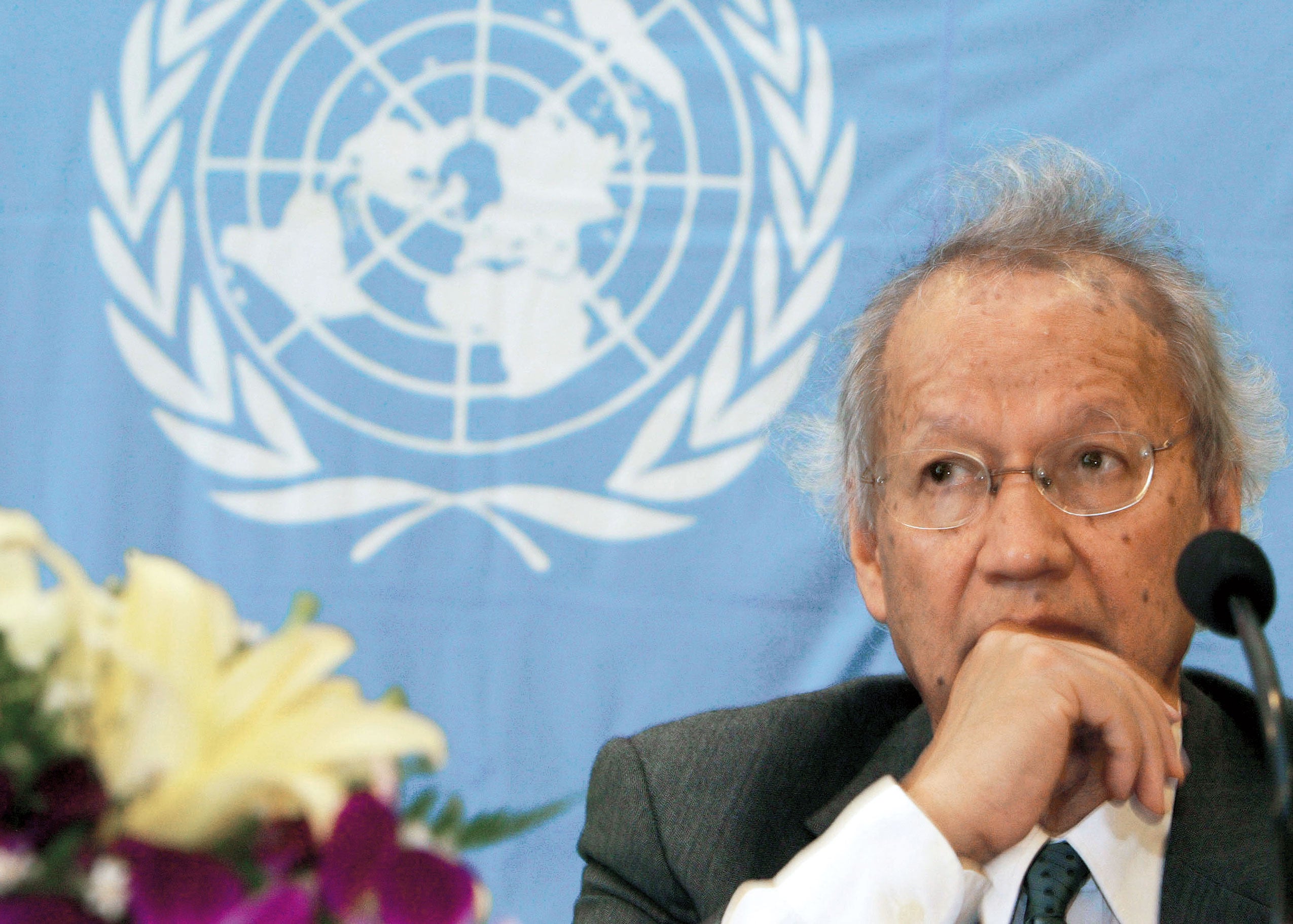Where there’s been war and strife, a tireless traveler brings law
Yash Pal Ghai LL.M. ’63 has spent his professional life quietly advising countries ravaged by war and colonialism on how to use the law to build democratic societies. Recently, though, his work has received extensive coverage, particularly in Asia, for his sharp criticisms of Cambodia’s current human rights record—and the even sharper response of that country’s prime minister, Hun Sen.
In November 2005, Ghai was appointed the United Nations special representative on human rights in Cambodia, where his role is both to scrutinize the government’s record and to encourage legal structures and policies that will improve the situation on the ground. In 2006, he released a searing report arguing that in a country that started on the road to democracy 15 years earlier, with the signing of the Paris Peace Agreements, “human rights continue to be violated on a massive scale”—and that these violations are “deliberate, pervasive and systematic.” He placed much of the blame on the centralized government of the Cambodian People’s Party, for intimidating its political opponents, banning protests and rallies, undermining the country’s constitution and interfering with the judiciary. Hun Sen responded angrily—much as he had to reports by previous U.N. representatives—refusing to meet with Ghai and calling for his dismissal; it was an approach, Ghai wryly notes, that brought more attention than otherwise would have been paid to the human rights violations he is working to expose.
Even if Cambodia’s prime minister would argue otherwise, Ghai couldn’t be better suited for the job he’s been asked to do. Throughout his career, he’s blended scholarship on constitutional law and human rights with practical work on constitution-making—particularly, he said, as a “device to resolve violent internal conflict” in places like Iraq and Nepal.
Born in Nairobi, Kenya, in 1938, to parents who migrated from India, he studied at Oxford and HLS and is now a member of the law faculty at the University of Hong Kong. Although he’s taught and lived all over the world, it is to East Africa that Ghai feels the strongest ties. It’s where he grew up and where his interests in constitutional law began. “I became interested in constitutions as a young student,” he said, “because of the decolonization of Africa, particularly my own area, Kenya, Uganda and Tanganyika, where constitution-making was the principal form of negotiating for independence.”
Ghai tried to bring a new constitution to his native country when he chaired the Kenyan Constitution Review Commission from 1999 to 2004. With Kenya’s weak tradition of democracy, Ghai sought above all for the process to be “as democratic and participatory as possible.” Representatives traveled to towns and villages throughout the country, holding explanatory meetings and inviting submissions from groups and individuals on their ideas of what a new Kenyan constitution should be. The commission received over 37,000 responses and came up with a constitution that would have increased the accountability of the government and given the provinces more localized power. In the end, though the document was adopted by Kenya’s National Constitutional Conference, the executive branch, in Ghai’s words, “sabotaged it,” and it was not brought into force—a reminder, he said, that democracy is a slow process and that, at its heart, “constitution-making is a highly political act, often controversial and bitter.”
Still, Ghai said, his “hope is to become more engaged with Africa’s pursuit of democracy and justice.” And he hopes, too, that an increasing number of young lawyers will follow in his path, helping conflict-ridden countries around the world build the legal frameworks necessary to begin the process of repair.
While Ghai is disappointed that so many law students prefer to study “commercial law subjects, where money is to be made,” he does see progress. “There is much greater interest in human rights and public law now than when I first started teaching,” he said. “This trend seems to be universal—as the contradictory aspects of democratization and globalization are played out in the public domain.”
